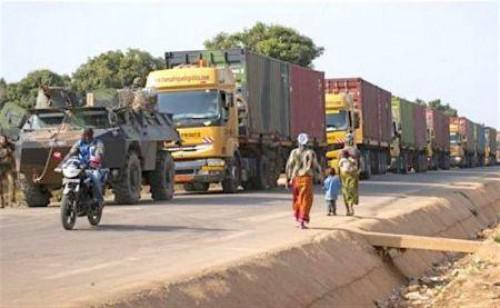Last September 16, the thrust block of a culvert crumbled in Ebomé, along the Yaoundé-Douala road which is part of the Douala-Ndjamena and Douala-Bangui corridors. Few days later, on September 25, another road section, along the Ngaoundéré-Dang road, in Cameroon’s Northern region, collapsed. Due to these two incidents, transporting goods to Kousseri, which shares a border with Ndjamena, Chad’s capital city, has become extremely challenging.
Before the collapses which, of course, had a negative impact on activities along the Douala-Ndjamena corridor where about FCFA340 billion worth of Chadian goods transit each year, the traffic was already troublesome. This is according to Cameroon’s customs office.
“The bad state of the Maroua-Kousseri axis forces us to use the road that goes from Touboro to the South of Chad, and heads up to Ndjamena. This causes long delays on delivery schedules. At least 800 km separate Maroua and Kousseri. However, going around passing through Chad, the distance is twice as long,” said Alhadji Ousmanou, a leading member of Cameroon’s Road Hauliers’ Organization, in an interview with tri-weekly regional newspapers l’œil du Sahel.
According to our source, beside the state of roads, which causes hauliers, importers and exporters to record significant losses, traffic on the Douala-Ndjamena corridor has considerably decreased due to the absence of freight. “You could have your truck, registered, settle your fiscal status, full of fuel, things are still difficult (…) Some hauliers load cargos at Douala heading Kousseri, but have issues going back as they have to do so with no cargos and cannot therefore bear the cost of their trip,” Alhadji Ousmanou explained.
The lack of freight, which can partially be attributed to a slowdown of Chad’s economic activities, as a result of the crisis in oil prices (the country gets 70% of its revenues from the black gold, according to CEMAC’s commission), had already been denounced months ago, by the Road Transport Professionals Union.
However, at the time, the union was blaming a group of clandestine hauliers who actually control nearly 45% of the terrestrial freight in Cameroon.
With businessincameroun




































